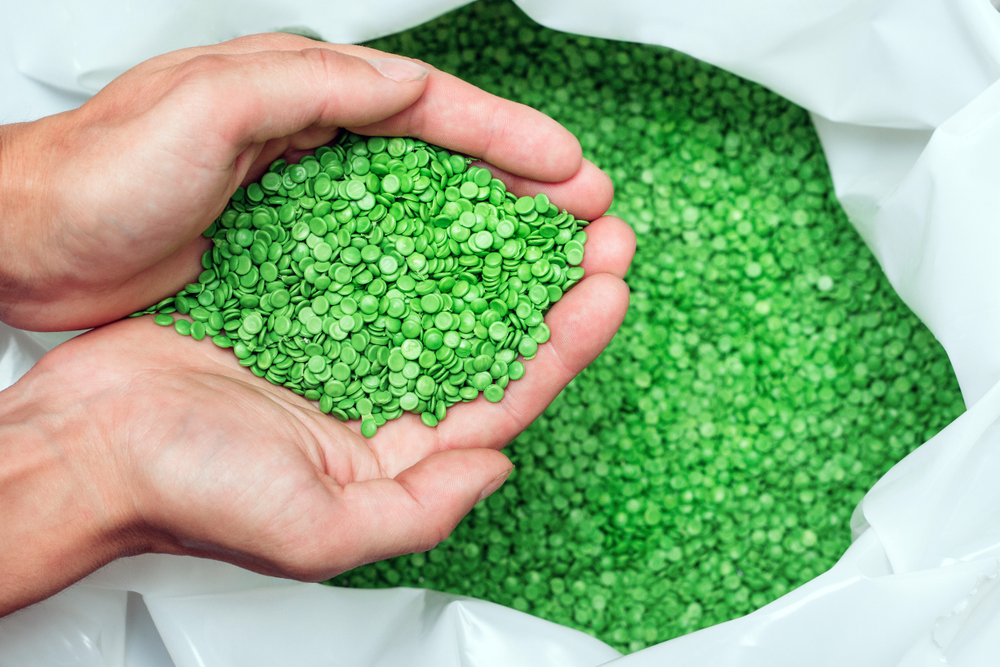More than 40 organisations including retailers and trade associations have written an open letter calling for a ban on plastics containing additives to make them degrade.
The open letter, sent to the media on 22 October, called on the government to “follow the lead” of the European Union, which is banning ‘oxo-degradable plastics’ from next year (Directive, clause 15).

The open letter called on the government to “follow the lead” of the EU, which is banning ‘oxo-degradable’ plastics from next year
The letter comes in the wake of the development of a British Standards Institution (BSI) specification for measuring the biodegradability of polyolefins, published earlier this month. The specification, PAS9017, was sponsored by a company which produces biodegradable and compostable plastics and was developed by a steering group which included the Waste & Resources Action Programme (WRAP).
Letter
The letter states: “The UK voted for the EU ban when it was proposed in 2019. Failing to act now could turn Britain from a leader into a laggard in fighting the plastic crisis.
“For these reasons, we call on the government to protect our environment, protect our food production, and protect British business by banning these materials immediately.”
It continues: “Increasing evidence shows that microplastics are entering the food chain through animals, fruits and vegetables. This impacts human health, soil health and biodiversity.
“Equally, these degradable plastic alternatives will disrupt the Britain’s recycling facilities, which will be unable to differentiate between conventional plastics and doctored alternatives.
“We call on the government to protect our environment, protect our food production, and protect British business by banning these materials immediately.”
Signatories include retailers Tesco, Aldi, Waitrose and the Co-op, as well as a number of trade associations, including the Bio-based and Biodegradable Industries Association (BBIA) and the Environmental Services Association (ESA).
British Standards Institution
On 1 October the BSI published the new specification for measuring the biodegradability of polyolefins. Signatories to last week’s open letter claim the new specification supports the sale of oxo-degradable plastics. The letter reads: “The calls [for the ban] follow news that the British Standards Institution (BSI) enacted a new specification (PAS9017) this month supporting the sale of such plastics.”

WRAP is based in Banbury, Oxfordshire
The specification was developed by a steering group made up of WRAP, the Food and Environment Research Agency (FERA) and the Department for Business, Energy and Industrial Strategy (BEIS), amongst others.
PAS9017 sponsor Polymateria is a London-based privately owned technology company which develops biodegradable and compostable plastics. Polymateria has the backing of some heavy hitters in retail and manufacturing: one of its directors is retail expert Marc Bolland, who was previously at the helm of Morrisons and then Marks & Spencer. He spoke of the work done by Morrisons to remove plastic from its products at WRAP’s annual conference in 2009 (see letsrecycle.com story). Also on the company’s board is Frederic De Mevius of Planet First Partners, which has invested in Polymateria.
Polymateria is described as “a European advanced technology company developing a new standard in biodegradable and compostable plastics. Their scientists have created a breakthrough, proprietary formulation for plastics – called Biotransformation – that makes this possible in the natural environment if fugitive plastics escape from the circular economy.”
Surprise
Given the reaction following the publication of the specification, there is some surprise that WRAP has been involved in its development.
“This is damaging our international reputation”
One perspective came from David Newman, managing director of the BBIA, who told letsrecycle.com: “We are in discussions with WRAP around communications in which their position on this standard will be made public.”
He continued: “What’s so sad about this is that it’s happening in the UK, which has promised to meet or go beyond environmental standards set by the EU.
“The EU has already put in a ban on these materials and the UK has not yet done so. This is damaging our international reputation.”
The BBIA aims to develop the circular bioeconomy in the UK, promoting markets and production of bio-based and biodegradable chemicals.
WRAP and Polymateria were approached for comment by letsrecycle.com.
Oxo-degradable material
Oxo-degradable material can be found in products such as plastic bags and contain an additive which helps the plastic to bio-degrade.
Those behind the technology say among the benefits are that it can help deal with waste which has escaped into the environment and cannot be collected for recycling or anything else.
In March 2019 the European Parliament approved measures aimed at tackling marine litter by limiting the use of disposable plastic. Restrictions prohibiting the placing on the market of oxo-degradable plastic are to come into force on 3 July 2021.
In March 2020, Wales introduced legislation to ban oxo-degradable plastics as part of its single use plastic ban (see letsrecycle.com story).
The post WRAP caught up in degradable plastics row appeared first on letsrecycle.com.
Source: letsrecycle.com Plastic


